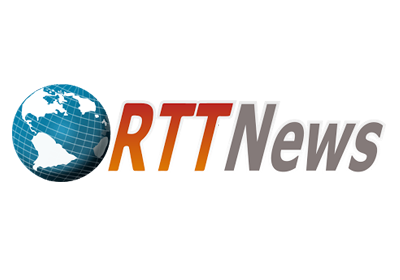Renewed Omicron Concerns Lead To Rebound By Treasuries

Following the pullback seen in the previous session, treasuries showed a strong move back to the upside during trading on Tuesday.
Bond prices gave back some ground after an early upward move but remained firmly positive. As a result, the yield on the benchmark ten-year note, which moves opposite of its price, slid 8.7 basis points to 1.443 percent.
During the session, the ten-year yield fell as low as 1.412 percent, hitting its lowest intraday level in over two months.
Treasuries benefited from their appeal as a safe haven amid renewed concerns about the new coronavirus variant after Moderna’s (MRNA) CEO said in an interview that Covid-19 vaccines are likely to be less effective against Omicron.
Moderna CEO Stephane Bancel said in an interview with the Financial Times that it would take a couple of weeks to determine how much the mutations have affected the efficacy of the vaccines currently available in the market.
“Depending on how much it dropped, we might decide on the one hand to give a higher dose of the current vaccine around the world to protect people,” Bancel said. “Maybe people at very high risk, the immunocompromised, and the elderly should need a fourth dose.”
Regeneron Pharmaceuticals (REGN) has also warned its Covid-19 antibody cocktail and similar drugs could be less effective against the Omicron variant.
However, treasuries pulled back off their best levels after Federal Reserve Jerome Powell suggested the central bank would discuss accelerating the pace at which it reduces its asset purchases during the next monetary policy meeting.
“At this point, the economy is very strong and inflationary pressures are higher, and it is therefore appropriate in my view to consider wrapping up the taper of our asset purchases … perhaps a few months sooner,” Powell said during Congressional testimony.
In early November, the Fed announced plans to begin reducing its $120 billion in monthly bond purchases by $15 billion per month.
Powell’s comments suggesting accelerated tapering comes as he told the Senate Banking Committee the recent surge in new Covid-19 cases and the emergence of the Omicron variant pose downside risks to employment and economic activity and increased uncertainty for inflation.
“Greater concerns about the virus could reduce people’s willingness to work in person, which would slow progress in the labor market and intensify supply-chain disruptions,” Powell said.
The potential for the intensification in supply-chain disruptions comes as Powell noted pandemic-related supply and demand imbalances have already contributed to notable price increases in some areas.
Powell also indicated the Fed should retire the word “transitory” when referring to inflation, noting the central bank views it as meaning not leaving a lasting mark on the economy rather than short-lived.
Trading on Wednesday may be impacted by reaction to reports on private sector employment and manufacturing activity.
Source: Read Full Article
